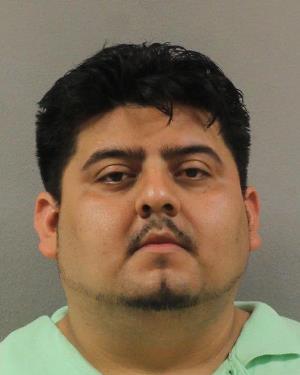Putin’s Hand Grows Stronger as Right-Wing Parties Advance in Europe
Nazi-style immigrant and EU bashing is in hot demand. Russia’s Syria move will make it hotter.
Bloomberg: A growing pro-Kremlin contingent in Europe, likely emboldened by Russia’s decision to withdraw most of its forces from Syria, is tipping popular sentiment further toward President Vladimir Putin.
The most pressing of the issues vital to Putin is European Union sanctions against Russia, introduced in the wake of Moscow’s intervention in Ukraine in 2014. It’s hard to say whether the EU can preserve unity on the subject for much longer, said Petras Vaitekūnas, the former Lithuanian foreign minister, who advises the Ukrainian Security Council.
“I expect big problems with that, and with our ability to repulse Putin’s onslaught,” he said.
Ten days ago, yet another far-right party supporting Russia gained a foothold in an EU country, this time Slovakia. People’s Party, Our Slovakia won 8% of the vote in national elections, joining a burgeoning club including Hungary’s Jobbik, Greece’s Golden Dawn and Marine Le Pen’s National Front in France.
The far-right parties, which often stem from neo-Nazi groups and sport crypto-fascist insignia, are the most visible layer of the pro-Russia camp in Europe. With Europe engulfed in a migrant crisis sparked by the war in Syria, their anti-immigrant and anti-EU rhetoric is in hot demand across the continent, particularly in the east. Party leaders are frequent guests in Moscow, and many of them are closely linked to Russia’s own reactionary networks. Together, they are nudging the political mainstream toward radical nationalism, which these days often comes hand in hand with pro-Russian sentiment.
The leader of Our Slovakia, Marian Kotleba, has a penchant for Nazi-style uniforms and harsh rhetoric aimed at the Roma, or Gypsies. He took Russia’s side in the Ukraine crisis, sending a letter of support to the pro-Moscow leader, Viktor Yanukovych, a month before he was ousted in the country’s 2014 revolution.
Such groups help Russia create what Anton Shekhovtsov, a Vienna-based expert on Europe’s far right, calls an echo chamber of narratives, amplified as they bounce around news outlets and social media, increasingly becoming part of conventional thinking. He cites such narratives as “Sanctions are useless,” “Russia is an important trade partner,” and “Europe slavishly succumbs to the U.S.”
For now, the anti-sanction opposition consists of smaller countries, such as Slovakia, Greece, Hungary, and Cyprus. While voicing their reservations, they don’t dare stand against the majority. “But it only requires one large EU country to upset the balance,” Shekhovtsov said.
In fact, one large country already has moved that direction. In December, Italy blocked the automatic rollover of the sanctions, which increases the possibility of their being lowered in one of the coming renewal rounds. The large pro-Russian camps in France and Germany are adding to the chorus of skepticism.
Another milestone in relations between Russia and the EU is a Dutch referendum on the association agreement between the EU and Ukraine due on April 6. It started off as a prank by an anti-establishment group. Now, polling shows support for rejecting the agreement. The results of the vote will be non-binding, but its symbolism is great — it was this agreement that triggered the crisis in Ukraine in 2013.
When, the following year, a missile hit a Malaysian airliner flying over Ukraine, 193 out of 298 passengers on board were Dutch citizens. The government of the Netherlands blamed Russia for fomenting war in Ukraine, but many in the country share the view expressed by the leader of the country’s largest far-right party, Geert Wilders, who called the Ukraine crisis a “mess” caused by the EU.
Russian relations themselves are rarely much of an election issue. They certainly weren’t in the Slovak voting, Carnegie Endowment scholar Balasz Jarabik noted. Instead, the campaign was focused largely on the migrant crisis, with incumbent center-left prime minister, Robert Fico, embracing the same kind of anti-migrant rhetoric as his right-wing rivals. Still, the result is a more Russia-friendly parliament in a country that is taking over the EU presidency in July.
Even before the election, Slovakia was among the nations that voiced skepticism about the sanctions on Russia, which are renewed every six months, with the next decision due in June. Fico has called them ineffective and counterproductive.
Most Europeans see the conflict in Ukraine as local, said Vaitekūnas, the adviser to the Ukrainian Security Council, “but I can see it expanding and touching upon the members of the EU and NATO.” The EU is too weak and disunited to answer global challenges such as those posed by Russia, he said.
Russian media networks that target Western audiences, such as RT and Sputnik, are promoting everything from anti-immigrant sentiment to “Brexit,” a British exit from the EU. The focus of what Vaitekūnas calls this “weaponized information” effort is now shifting to Germany, he said.
There, the next election may precipitate the downfall of Chancellor Angela Merkel, who has welcomed immigrants and was instrumental in shaping the EU’s response to Russia’s actions in Ukraine. On Sunday, Merkel’s Christian Democrats suffered serious losses in regional elections, while the new far-right anti-immigrant AfD party made big gains.
**** Russia is gaming while the Gulf States led by Saudi is continuing to side with Israel. Why? Hezbollah and Syria and for the United States to take notice.
In part:
Alternet: Why has Saudi Arabia now gone after Hezbollah? After all, Hezbollah has been involved in Syria for the past five years. Unable to take on the Russians and come to terms with altered reality, Saudi Arabia has decided to target Hezbollah, hoping that this will pique the enthusiasm of the United States (via Israel). But the U.S. is in a bind. It is pledged to UN Security Council resolution 1701, which is about the management of the Lebanese-Israeli border. UN peacekeepers maintain that border, working closely with Hezbollah, on its terrain. The UN cannot denote Hezbollah a terrorist organization if it means to maintain the integrity of its 1701 operations. This gives the U.S.—which already sees Hezbollah as a terrorist group (under Israeli urging)—pause to escalate the situation. Saudi Arabia’s tantrum cannot be taken seriously in Washington. Nothing good will come of it.
Russia will now remove a substantial section of its military force from Syria. But it will remain at its naval and air bases, monitoring the ceasefire and watching to see if it needs to intervene once more.
It has made its point. At the same time the Russians have placed air-defense batteries along the northwestern section of the Syrian border, which has prevented Turkish air incursions into this sector. These batteries will not be removed. They are monuments to the new reality.















